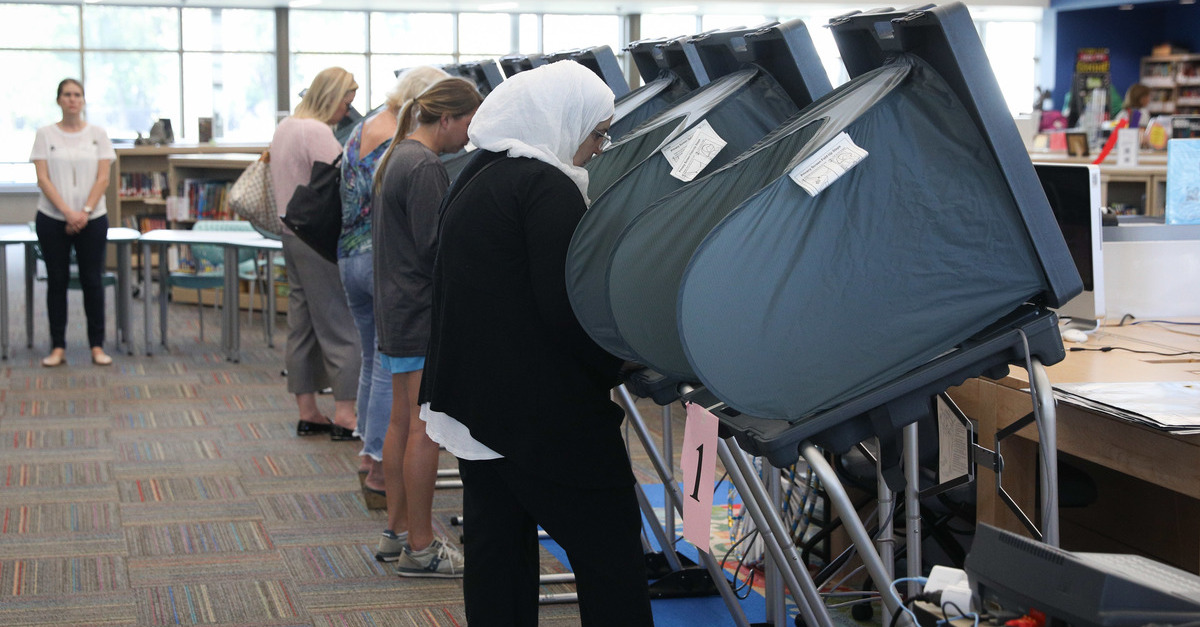
Texas Democrats and congressional committees affiliated with the national Democratic Party are suing Texas Secretary of State Ruth Hughs in a bid to overturn a law recently-enacted by the Republican legislature which makes it more difficult for citizens to vote.
The lawsuit takes aim at Texas’s recently-enacted voting law, HB 1888, which mandates that all early voting locations remain open on the same days as each county’s main early voting hub and that each early voting location remain open for at least eight hours per day.
Democrats say these requirements are fatal for youth voter turnout.
The 19-page lawsuit alleges:
HB 1888 effectively bans “temporary” or “mobile” early voting, which afforded county officials the discretion to open early voting locations with flexible hours and days, giving them the chance to bring early voting opportunities to as many voters as possible, including thousands of young Texans living on or near college or university campuses and without reliable access to transportation. Plaintiffs challenge these changes, which have already led and, if not enjoined, will continue to lead to substantially fewer early voting opportunities for young voters, as unconstitutional under the First, Fourteenth, and Twenty-Sixth Amendments.
Democrats say the new mandatory uniformity measures will overburden many county officials and ultimately force the state to cut down on the total number of early voting sites. Similar claims were leveled at the North Carolina GOP earlier this week.
“HB 1888 does not treat Texas voters equally regarding access to early voting,” the lawsuit continues. “It mandates an inequality, because it disproportionately reduces or eliminates access to the franchise for Texas voters living or working on or near a college or university where on-campus temporary voting is no longer available, and where so many temporary voting locations had been placed, often at the college or university’s own expense.”
Texas has long had embarrassingly low voter turnout rates; for years, some of the lowest voter turnout rates in the country.
“The state’s consistently low turnout is attributable in part to its restrictive voting laws, which include an early registration deadline, a lack of online voter registration, and a restrictive photo identification law,” the lawsuit notes–saying the new laws will continue the older trend of abysmal voter turnout.
That trend changed a bit during the 2018 midterm election:
One particular bright spot in the 2018 midterm elections was the significant use of early voting, and particularly temporary early voting, by young voters in Texas. Youth early voting rates rose by a whopping 508 percent statewide as compared with 2014. These included young voters at college campuses statewide making substantial use of temporary early voting locations offered on campus.
But advocates stress that uptick will likely be diminished if the new laws are allowed to take effect for the 2020 election.
“The bill has already produced, and will continue to produce, significant harm to young voters absent action from this court,” the filing continues. “Already, counties have been forced to offer significantly fewer early voting locations in the 2019 off-year elections than they did in previous off-year elections, and have indicated that they will also be forced to offer significantly reduced early voting opportunities in the upcoming 2020 elections. In Travis County, for example, the county had 77 total early voting sites in 2017, when the law was not in effect, with 23 full time early voting sites and 54 locations where a mobile early voting site was located for at least one day of the early voting period. In the 2019 election, with the law in effect, the county has opened only 30 early voting locations in total.”
Democrats also allege that GOP leaders in the Lone Star State have intentionally made voting more difficult in recent years:
Since the Supreme Court’s decision in Shelby County v. Holder did away with preclearance under Section 5 of the Voting Rights Act, Texas has also closed more polling places than any state previously subject to preclearance, further depressing turnout.
The plaintiffs are seeking a finding that the new voting law provisions are unconstitutional under the First, Fourteenth and Twenty-Sixth Amendments; an injunction barring those provisions from being further used by voting officials; and attorney’s fees.
Read the full complaint below:
Texas Mobile Voting Filed Complaint by Law&Crime on Scribd
[image via